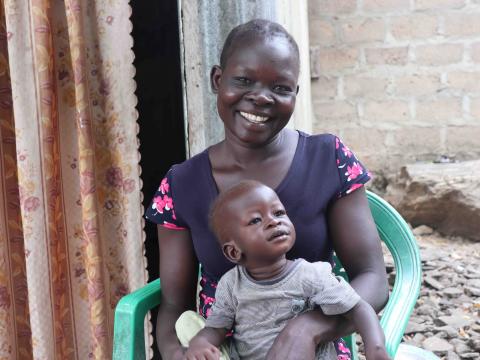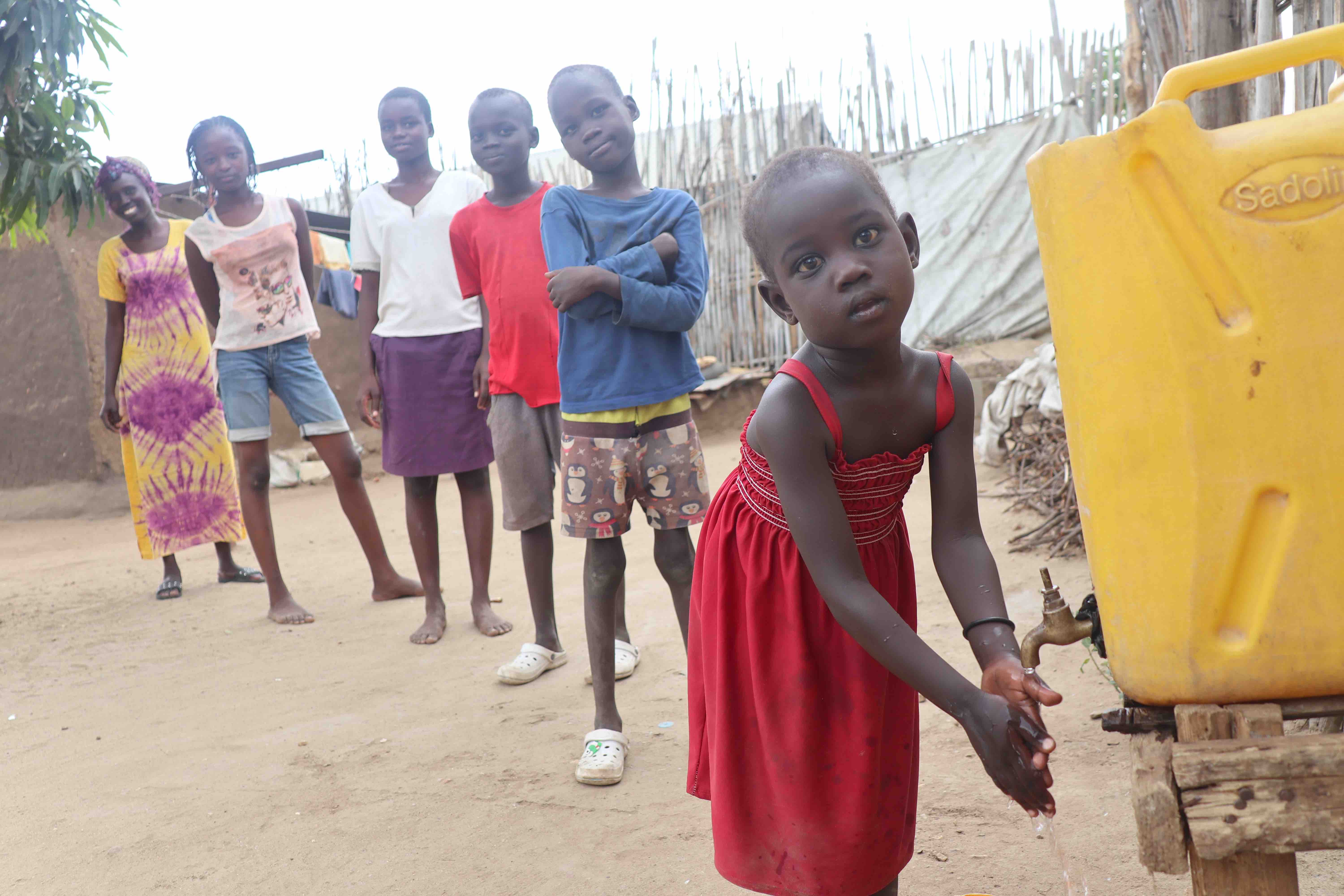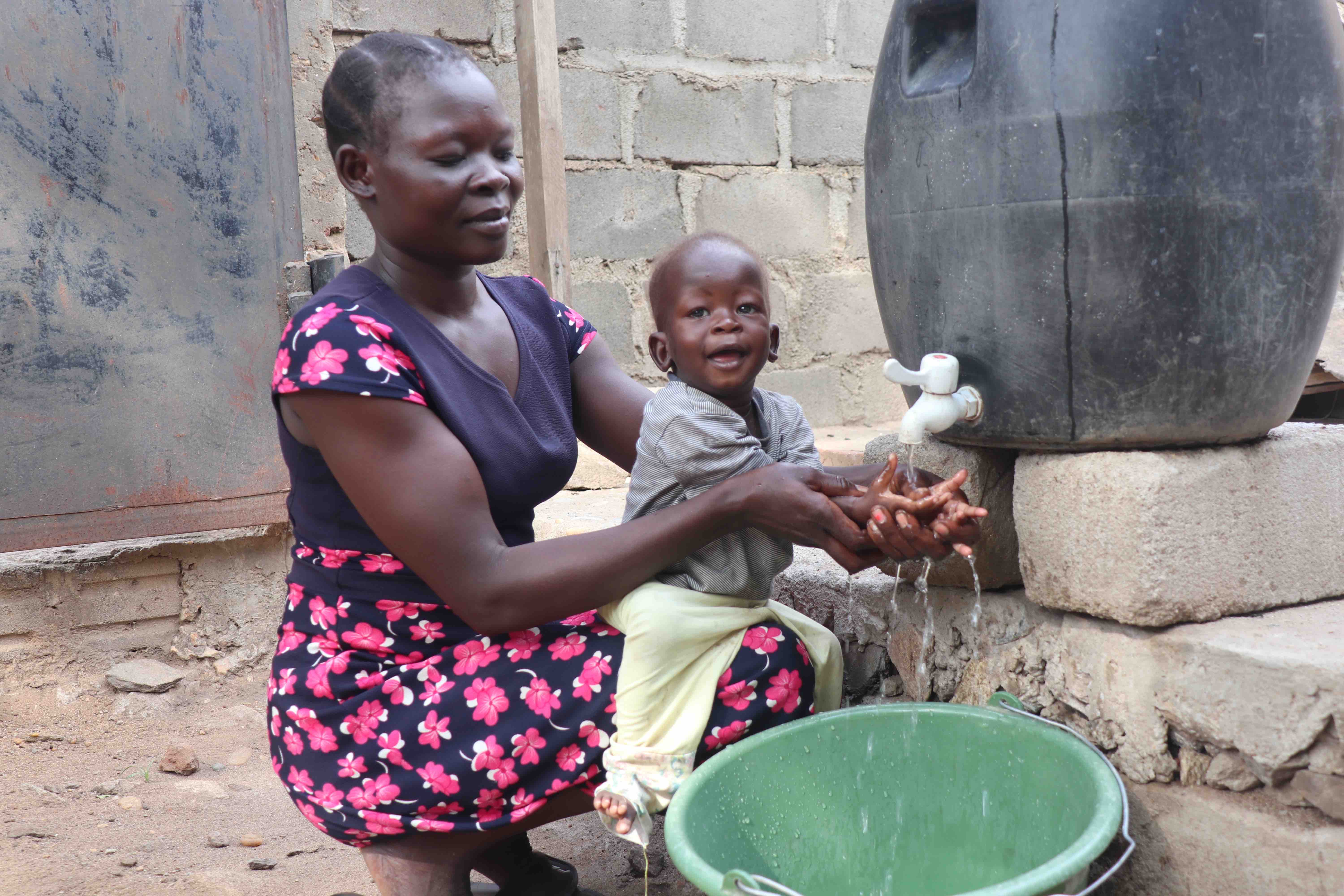Race between malnutrition and COVID-19 getting to vulnerable children in South Sudan need an urgent attention

The nutrition centers integrated into 15 health facilities around Juba urban were always crowded and full of life. Babies smiling and crying, mothers waiting patiently for their turn and health workers listening to every story from the patients. That was before the COVID-19 pandemic slowly crept into the consciousness of South Sudan’s population.
“This is my biggest worry as well as the mothers I talk to. This pandemic, as people’s movements become limited, can deprive malnourished children and mothers of critical life-saving nutrition services. In the capital city Juba alone, World Vision supports 87,294 people through the nutrition program”, says Rahab Kimani, World Vision’s Nutrition Program Manager.
Kimani adds, “Over 14,000 of these are children are estimated to be suffering from severe and moderate acute malnutrition, more than 3,500 pregnant and lactating mothers and more than 70,000 receive regular counseling about maternal, infant and young children nutrition practices.”

Supervised by 33 staff with 11 nurses and 127 community nutrition volunteers, the program has now included COVID-19 awareness and prevention in its campaign. “It is also a concern that the nutrition volunteers cannot hold malnutrition screenings in the communities. This will also mean that mothers will miss peer support services because mother-to-mother group meetings are temporarily suspended”, Kimani explains.
One of the mothers who frequent the nutrition center is Susan Nyoka 25, and mother to one-year-old David Lemi. As soon as she found out the dangers of the virus from World Vision’s campaign, she installed her own handwashing facility at home to protect David, not just from COVID-19 but from other diseases.
This is my biggest worry, as well as the mothers I talk to. This pandemic, as people’s movements become limited, can deprive malnourished children and mothers of critical life-saving nutrition services. In the capital city Juba alone, World Vision supports 87,294 people through the nutrition program.
“I decided to have one at home and wash my hands before touching anything, at breastfeeding and even playing with my boy. I also wash his hands every 20 minutes”, Nyoka says. To ensure David is safe from the disease, Nyoka decided to leave her business and stay home to protect him from getting infected.
The loss of jobs and businesses is one major concern in a country with over seven million people struggling from hunger and debilitating food insecurity. Kimani shares, “The closure of shops, markets and other means of income for families will also affect their ability to buy food and essential supplies, especially for children.”

She adds, “Even access of vulnerable children to health services, especially those critical sudden-onset illnesses, is a sad reality. Many government clinics in Juba where they go to are operating on half-days from 9 am-1 pm. The mothers raised so many questions such as if babies can get COVID-19 through breastfeeding and how do they access nutrition services if their movements are not allowed.”
Kimani is certain that with the prolonged impact of COVID-19 in South Sudan, malnutrition will affect millions of children and mothers. “The need to keep the campaign going and reach the most remote communities is crucial. Malnourished children can suffer more and will likely to experience more deaths due to malnutrition than COVID-19 with the absence of services.”
To date, over 2,300 people have been reached with COVID-19 key messages by World Vision with the support of the community health volunteers.
Related story: How mothers in Juba are keeping their children safe
Story by Cecil Laguardia, Communications Manager I Photos by Scovia Faida Charles Duku, Communications Officer